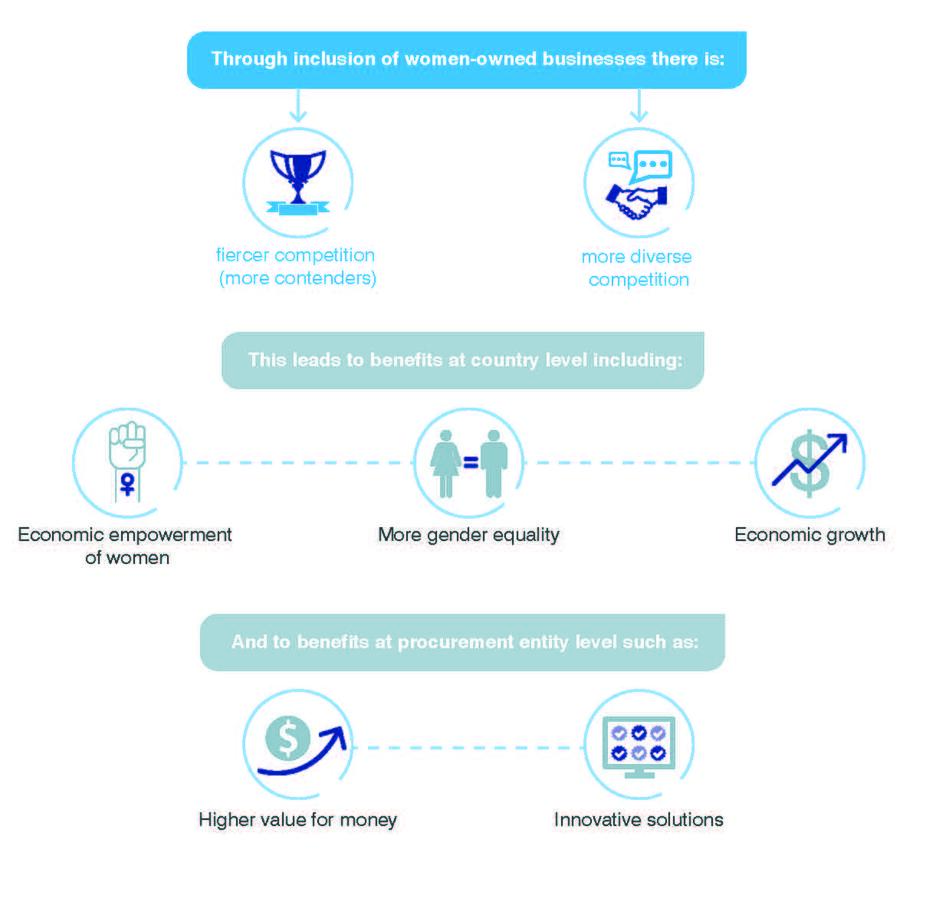
Support women-owned businesses by buying from them
Empowering women through public procurement is realistic and urgent, as shown in this expert contribution for Trade Forum.
Around the globe, women entrepreneurs find themselves in disadvantaged positions compared to their male counterparts. Generally, women work in less profitable sectors and often in the informal economy. This means that a lot of potential remains untapped.
According to Boston Consulting Group, the world economy would grow up to $5 trillion if women and men participated equally as entrepreneurs.
On a more local level, economies benefit from more income-generating women entrepreneurs because women tend to invest their money in their families. This increases chances for their children to grow up healthy and with proper education, providing them with a good starting position for economically independent lives. This effect is even multiplied because women entrepreneurs, more than men, employ other women.

Governments can, and should, play a key role in supporting women entrepreneurs that want to grow their businesses. A straightforward and effective opportunity to support women is to buy from them. Research shows, however, that currently only 1% of government spending goes to women-owned businesses. It is time for governments to start practicing gender-responsive procurement.
Empowering women through public procurement is realistic and urgent as it directly contributes to multiple United Nations Sustainable Development Goals such as 'No Poverty', 'Gender Equality' and 'Decent Work and Economic Growth'.
Women-owned businesses face six categories of barriers, related to legal and policy frameworks, regulations and practices from procuring entities, and their own capabilities. Not all barriers exist in all countries, and not all women-owned businesses face the same kinds and numbers of challenges. When governments practice gender-responsive public procurement, they are receptive to these barriers and take a country-specific approach to facilitate participation of women-owned businesses in public tenders.
Countries like Chile, the Gambia and Nigeria are frontrunners in this area; they decided to proactively support women-owned businesses by empowering women through public procurement. More recently, gender-responsive public procurement has landed on the agendas of Bangladesh, Côte d’Ivoire, Liberia and Uganda.

The guide Making public procurement work for women provides policymakers, statistical offices and procurement officers with tools for reform. It contains targeted assistance strategies as well as practical measures that can be applied on the road towards gender-responsive public procurement.
Targeted assistance strategies help more women-owned businesses win public tenders, for example, by giving them more points in the evaluation process. Measures reduce barriers that women-owned businesses face while trying to compete. Most importantly, a target percentage of the entire purchasing spend (to be realized at women-owned businesses) is a must-have at country level.
The Public Procurement Research Centre (PPRC) works on innovative solutions to tackle the inefficiency and undesirable consequences of unoptimized public procurement, which can cause a significant impediment for solving (global) societal challenges.
The collaboration between PPRC and the International Trade Centre makes it possible to leverage on PPRC's expertise through ITC's extensive, high-ranking multi-level network. Additionally, the collaboration adds to PPRC's expertise by enriching it with input from government organizations, trade support institutions and - of course - women entrepreneurs themselves.





